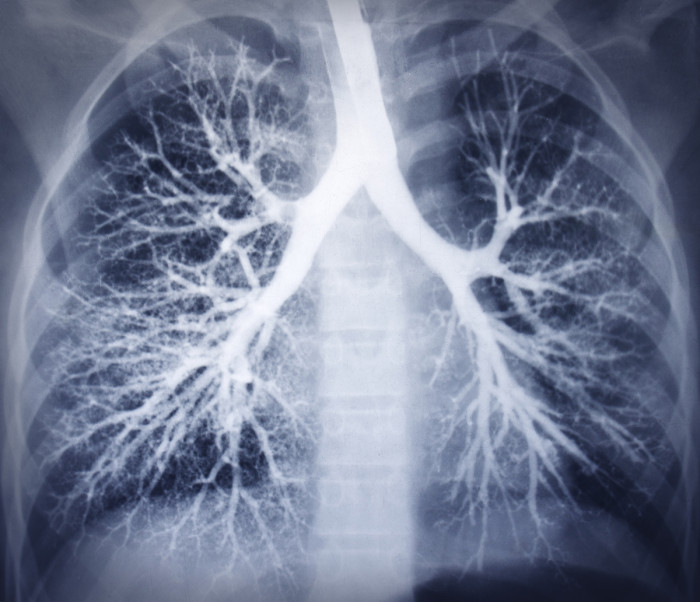Interventions to address lung transplant rejection
Researchers at Washington University are using innovative approaches to address major complications that can occur after lung transplant surgery

Organ rejection is more common after lung transplantation than with any other type of solid organ transplant, says Ramsey Hachem, MD, the medical director of the lung transplant program at Washington University and Barnes-Jewish Hospital.
“Unlike other organs, the lungs are in constant exposure to the environment,” Hachem says. “This means that there are microbes, pollutants and allergens going in with every breath and that the lungs are much more susceptible to infection than other organs.”
Chronic lung rejection and immune cell activity
To address chronic rejection, Hachem and Washington University colleagues are spearheading a multicenter clinical trial on the use of extracorporeal photopheresis (ECP), a procedure that modulates the activity of immune cells called T-lymphocytes. In the trial, they are comparing the rate of change in lung function before and after implementing ECP. Study investigators have been enrolling patients since early 2015.
During ECP, blood is extracted from the patient, and the immune T-lymphocyte cells are separated out and exposed to ultraviolet light before being returned to the patient along with the rest of the blood.
ECP has been used as a treatment for chronic rejection since the 1990s, but it is not approved by the U.S. Food and Drug Administration for this use after lung transplantation. That means it’s not covered by many health-care plans.
Washington University investigators obtained Medicare and Medicaid approval for the ECP treatment within the context of a clinical trial. This prompted the creation of a multicenter ECP trial.
“Previously, the number of patients that could be treated with ECP was really limited because Medicare did not provide reimbursement for the treatment,” Hachem says. “But through this trial, we’ve been able to expand ECP’s use to more centers, which gives more patients access to it.” The study is ongoing, with results expected in a few years.
Antibodies and lung transplant rejection
Another research focus at Washington University is the role of human leukocyte antigen (HLA) antibodies in lung transplant rejection. Washington University researchers previously discovered that HLA antibodies are often present in animals and human patients who develop chronic rejection. This led the institution to begin a program to screen lung transplant patients for these antibodies in clinical practice, and this has become part of the routine clinical care at most transplant centers nationwide.
So far the investigators, led by Hachem, have determined that up to 50 percent of patients develop HLA antibodies after lung transplantation and that the antibodies’ presence correlates strongly with rejection. The researchers are working to put together multicenter studies with the goal of identifying the best treatments for patients who develop HLA antibodies.
Mouse model of lung transplantation
In addition, researchers at Washington University were the first to develop a mouse model of lung transplantation, a key tool for studying transplant immunobiology.
“Our lab is recognized for its studies investigating immune responses after lung transplantation,” says Daniel Kreisel, MD, PhD, the surgical director of the lung transplant program at Washington University, who runs a federally funded basic research effort in conjunction with lung transplant surgeon Alexander Krupnick, MD, and immunologist Andrew Gelman PhD. “The mouse lung transplant model has allowed us to elucidate what’s unique about lungs compared to other organs. One important thing our research has shown us is that immunosuppressive strategies used for other organs may be detrimental for the lungs.”
Washington University and Barnes-Jewish Hospital operate one of the world’s largest adult lung transplant programs, says Hachem.
“At Washington University, we have a tremendous amount of clinical experience taking care of patients before, during and after lung transplantation, but a number of centers nationwide can do that,” Hachem says. “What distinguishes us,” adds Kreisel, “is that we can join that clinical care with a particularly robust research program addressing important questions of how to improve patient outcomes.”






